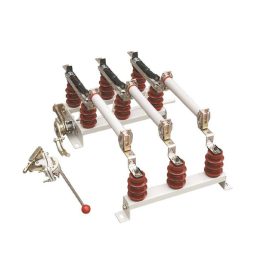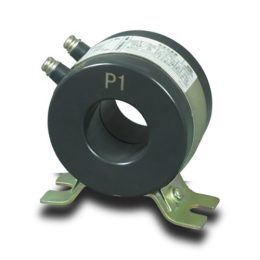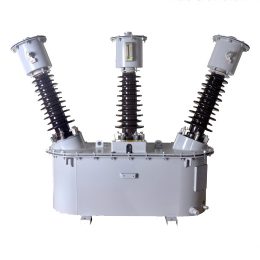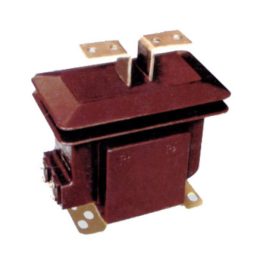Analysis of the Impact of Current Transformer Faults on Energy Meter Accuracy
Abstract
As the demand for electricity continues to grow with the development of the modern economy, ensuring accurate energy metering has become crucial for power enterprises to achieve economic benefits and maintain operational efficiency. The energy metering system comprises three key components: current transformers (CTs), energy meters, and secondary circuits. Among these, the CT is the core device, and its faults can significantly affect the accuracy of energy metering. This article analyzes the characteristics of current transformers, explores how their faults impact energy meter accuracy, and proposes effective solutions.
Keywords: Current Transformer Faults, Energy Meter Accuracy, Impact Analysis, Fault Diagnosis, Energy Metering
Introduction
Energy metering plays a critical role in the economic benefits of power enterprises and is closely related to the interests of users. This demands a high degree of accuracy in energy metering to ensure fairness and transparency. Current transformers are integral to energy metering systems, providing the necessary accuracy for energy measurement. However, issues such as residual magnetism and saturation in CTs can lead to fluctuations in the system, thereby affecting the accuracy of energy metering. This article discusses the characteristics of CTs, their common faults, and effective measures to address these issues.
Characteristics of Current Transformers
Current transformers act as connectors between the primary and secondary systems, converting high primary currents into smaller secondary currents. Their key functions include:
- Relay Protection: CTs work in tandem with relay devices to protect electrical equipment by adapting to changes in primary system currents and ensuring the safety of the secondary system.
- Regulated Operation: CTs facilitate standardized operation of secondary systems, enhancing the control capabilities of cables and reducing damage to energy metering devices.
- Accurate Energy Measurement: By ensuring proper current transformation, CTs minimize errors in energy meter readings, contributing to the reliable performance of metering systems.
Impact of Current Transformer Faults on Energy Meter Accuracy
Maintenance-Related Issues
Faults in CTs during maintenance can compromise energy meter accuracy. For example, prolonged operation under high load pressures or improper fault detection during inspections can create safety risks and lead to discrepancies in energy metering.
Faults Due to Inappropriate CT Selection
Selecting unsuitable CTs increases the likelihood of metering errors. Excessive core losses or poor design can degrade measurement accuracy, resulting in significant deviations in energy meter readings. Research shows that the inherent variability in CT characteristics is a primary factor contributing to these errors.
Impact on Metering Accuracy
Quality issues in CTs, such as magnetization loss or unqualified components, can introduce significant errors in energy metering. Inaccurate energy meters lead to discrepancies that affect both the reliability of power systems and economic fairness for users.
Solutions to Mitigate CT Faults in Energy Metering
Thorough Inspection of Faults
Regular inspections are vital for identifying and addressing potential CT faults. Key steps include:
- Inspecting short circuits and secondary terminal connections to detect and resolve issues promptly.
- Ensuring proper wiring practices to minimize the risk of faults.
- Checking primary and secondary circuits for anomalies to guarantee accurate operation.
Selecting Appropriate Current Transformers
The selection of suitable CTs is crucial for accurate energy metering. Proper assessment of secondary load capacity and reduction of external resistance can improve CT performance, enhancing the overall reliability of power systems.
Enhancing Measurement Accuracy
Optimizing and adjusting CTs based on operational requirements can significantly reduce metering errors. Operators must be trained to analyze and address discrepancies effectively, and implement compensation measures for CT faults during operation.
Conclusion
Current transformers are essential for energy metering systems, but faults in their maintenance, selection, and variability can significantly affect meter accuracy. Addressing these issues through proper maintenance, informed selection, and accuracy enhancement measures can ensure reliable energy metering. This, in turn, supports the efficient and sustainable development of the power industry.
- 4 Common Causes of 10kV Three-Phase Five-Pole Voltage Transformer Failures and Solutions
- Common Fault Handling for Current and Voltage Transformers
- Interrupteurs de Charge 12-24kV | Guide Complet de Spécifications Techniques et Maintenance
- Working Principle of Zero-Sequence Current Transformers
- Transformadores de Potencial 35kV | Especificaciones Técnicas y Aplicaciones en Subestaciones
- Analysis and Troubleshooting of Common Issues with Current Transformers



